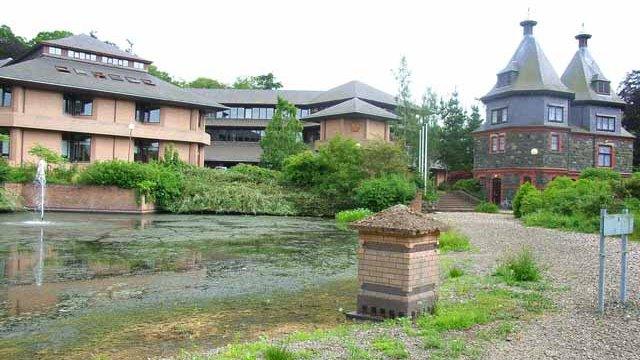Council merger plans a 'distraction', says auditor general
- Published
Huw Vaughan Thomas says councils need to be ambitious in changing the way they work
Debates on whether or not to merge councils have been a distraction from deciding how services should be run, the public spending watchdog has said.
Auditor General Huw Vaughan Thomas told BBC Wales English councils were "re-designing themselves" and Welsh councils needed to do the same.
Ministers want to reduce the number of councils from 22 to eight or nine.
Council leaders said they had "responded positively" in seeking new ways of running services.
Five years into the longest period of sustained spending reductions since World War Two, he said public services needed to be reformed, but that had been "overshadowed" by local government reorganisation.
'Longer term'
The Welsh government's council merger plans have had a hostile reception from political opponents and some Labour council leaders.
"There has been a lot of debate about the nature of services, but it has been overshadowed by what kind of structure of local government we want," Mr Thomas said.
"What's more important for people is not necessarily what council is there, but the services they are providing, it's certainly been a distraction.
"It's affected, I think, the ability of some councils to think beyond four or five year horizons. They need to think much longer term."
He said councils in England were "redesigning themselves" and "we need to be doing the same in Wales".
"But there's almost a desire to do as little change as is needed," Mr Thomas said.
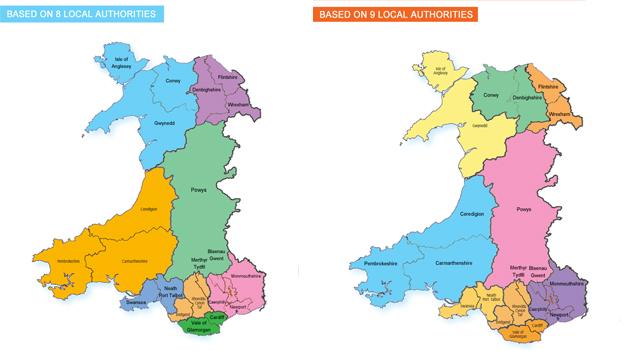
The Welsh government has proposed maps similar to the pre-1996 pattern of county councils
Cuts in Westminster have cost devolved services £1.2bn in real terms (7%) since 2010 and that is predicted to rise to £1.8bn (11%) by 2019-20.
Yet demand for services from a growing and ageing population has continued to increase.
In the latest in a series of reports assessing public services, Mr Thomas said there had been some improvements, for example in public health, the quality of NHS services and cancer survival rates.
Education results have also got better, albeit from a low base in some areas.
But waiting times, including for cancer treatment, emergency care and planned operations, have all got worse.
Poverty remains high and greenhouse gas emissions have increased.
And a Wales Audit Office survey found concerns that council mergers could be a distraction, diverting attention away from reforming services and towards structural changes.
Sixty nine of 135 respondents in local government said structural changes were one of the top three challenges facing them.
The Welsh Local Government Association (WLGA), which speaks for the councils, said the report offered a "positive view" of public services under pressure.
Bob Wellington, leader of the WLGA and Torfaen council, said: "We fully acknowledge the need for significant reform - not of local councils in isolation, but of public services as a whole in Wales."
He claimed councils had "shouldered more than their fair share of the financial burden".
"They have responded positively in seeking to adapt how they deliver their local services," he added.
The Welsh government said ministers agreed with the auditor general's comments.
A spokeswoman said: "There is wide-ranging agreement that 22 local authorities is not a sustainable long term position for Wales and does not provide the platform for the kind of public service transformation he discusses.
"We have always made it clear that mergers are part of a wide-ranging reform programme for public services in Wales.
"The draft Local Government (Wales) Bill, currently out for consultation, includes provisions to improve local democracy, improve the way local authorities engage and work with their communities and improve the way they manage their performance."

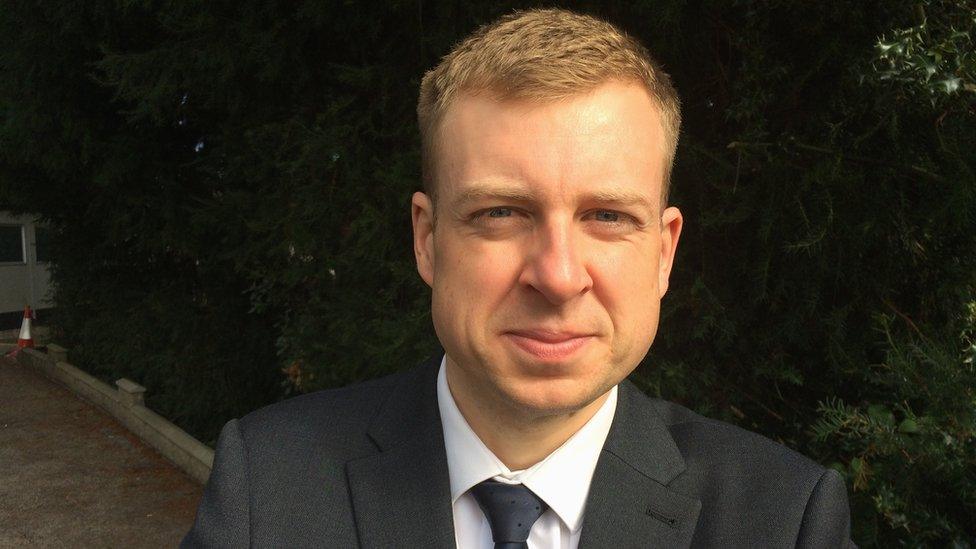
Analysis by Daniel Davies, BBC Wales political correspondent
A council leader tells me mergers will "end in tears".
Another says it's difficult for staff to feel enthusiastic about reforming public services if they're worried about whether their employer will still exist in a few years' time.
Those complaints come from across the political spectrum, including from within Labour.
Nothing will happen before the assembly election next May.
So rather than cool down, the debate that the auditor general deems a "distraction" will probably get more intense in the new year.
- Published16 December 2015
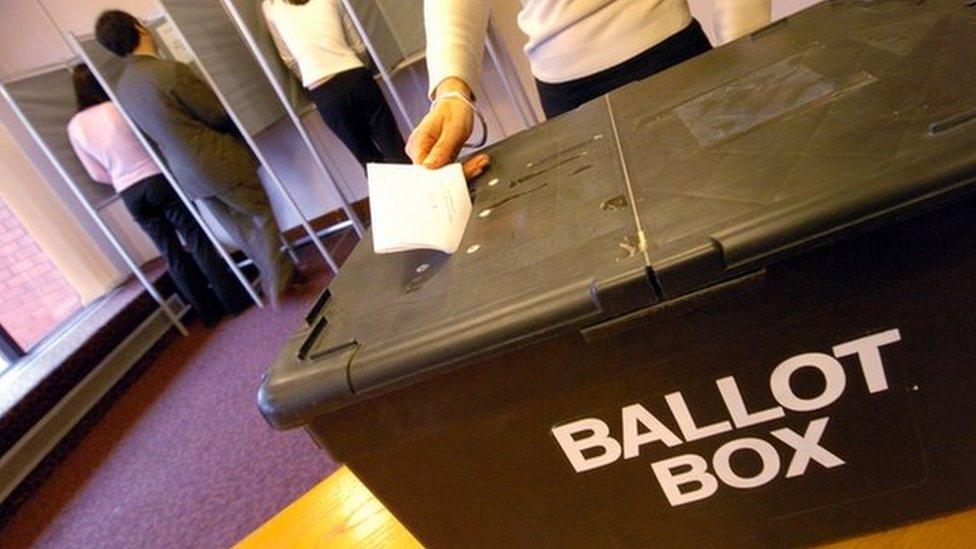
- Published24 November 2015

- Published9 December 2015

- Published9 December 2015
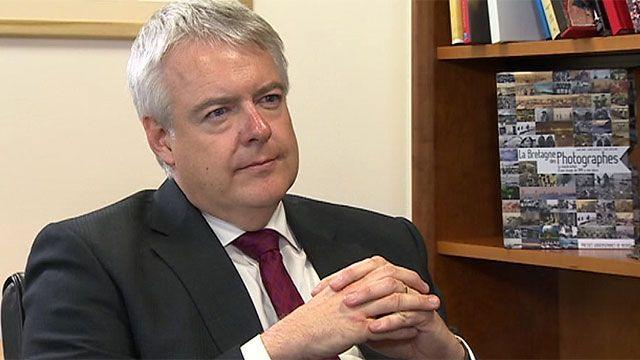
- Published7 December 2015
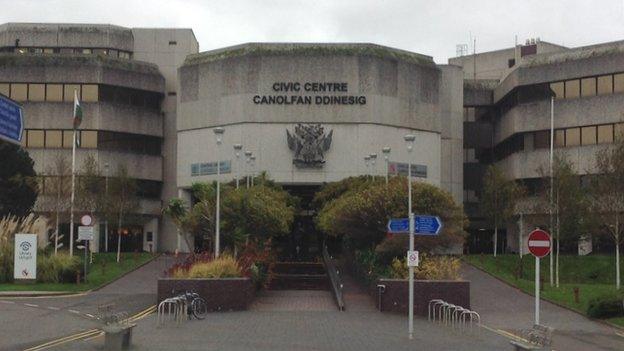
- Published4 December 2015

- Published1 December 2015
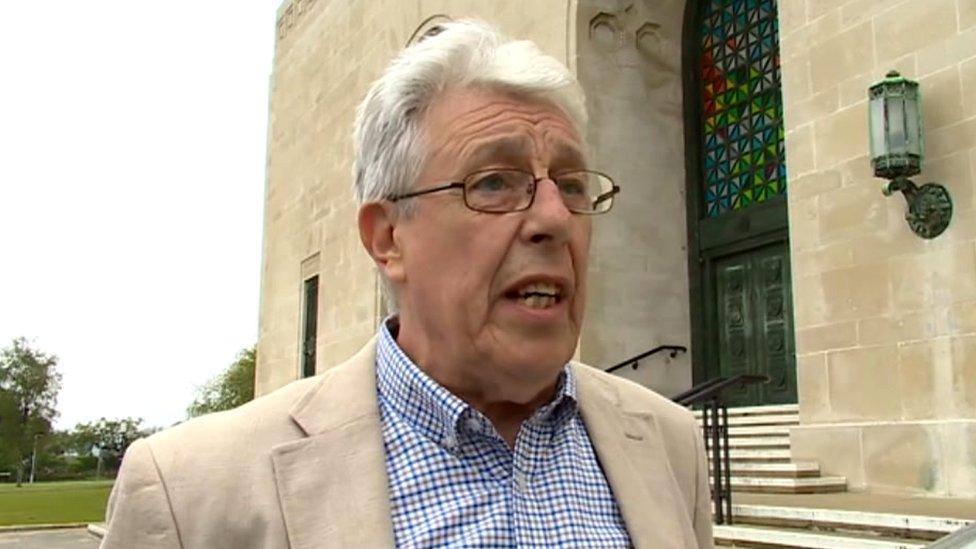
- Published27 November 2015

- Published1 September 2015
